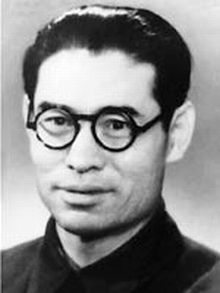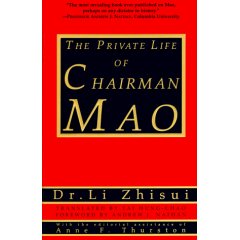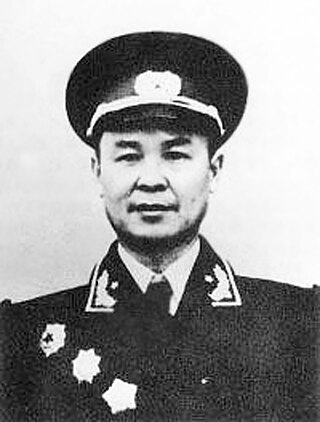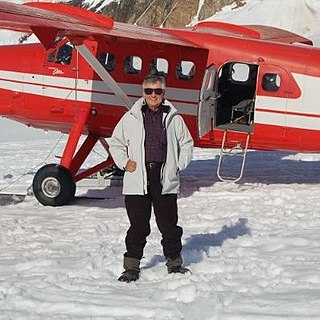Related Research Articles

The Chinese Communist Party (CCP), officially the Communist Party of China (CPC), is the founding and sole ruling party of the People's Republic of China (PRC). Under the leadership of Mao Zedong, the CCP emerged victorious in the Chinese Civil War against the Kuomintang. In 1949, Mao proclaimed the establishment of the People's Republic of China. Since then, the CCP has governed China and has had sole control over the People's Liberation Army (PLA). Successive leaders of the CCP have added their own theories to the party's constitution, which outlines the party's ideology, collectively referred to as socialism with Chinese characteristics. As of 2024, the CCP has more than 99 million members, making it the second largest political party by membership in the world after India's Bharatiya Janata Party.

The 1976 Tiananmen incident or the April 5 Tiananmen incident was a mass gathering and protest that took place on April 4–5, 1976, at Tiananmen Square in Beijing, China. The incident occurred on the traditional day of mourning, the Qingming Festival, after the Nanjing incident, and was triggered by the death of Premier Zhou Enlai earlier that year. Some people strongly disapproved of the removal of the displays of mourning, and began gathering in the Square to protest against the central authorities, then largely under the auspices of the Gang of Four, who ordered the Square to be cleared.
Generations of Chinese leadership is a term historians use to characterize distinct periods of the leadership of the Chinese Communist Party (CCP) and, by extension, successive changes in the ideology of the CCP. Historians have studied various periods in the development of the government of the People's Republic of China (PRC) by reference to these "generations".

Zhang Guotao was a Chinese revolutionary who was a founding member of the Chinese Communist Party (CCP) and rival to Mao Zedong. During the 1920s he studied in the Soviet Union and became a key contact with the Comintern, organizing the CCP labor movement in the United Front with the Kuomintang. From 1931 to 1932, after the Party had been driven from the cities, Zhang was placed in charge of the Eyuwan Soviet. When his armies were driven from the region, he joined the Long March but lost a contentious struggle for party leadership to Mao Zedong. Zhang's armies then took a different route from Mao's and were badly beaten by local Muslim Ma clique forces in Gansu. When his depleted forces finally arrived to join Mao in Yan'an, Zhang continued his losing challenge to Mao, and left the party in 1938. Zhang eventually retired to Canada, in 1968. He became a Christian shortly before his death in Scarborough, Ontario, in 1979. His memoirs provide valuable and vivid information on his life and party history.

Gao Gang was a Chinese Communist Party (CCP) leader during the Chinese Civil War and the early years of the People's Republic of China (PRC) before he became the victim of the first major purge within the party since before 1949. The events surrounding Gao's purge, the so-called "Gao Gang Affair", are still the subject of debate: a limited amount of research has been done on the topic, partly because of the relatively small amount of information available.

The Private Life of Chairman Mao: The Memoirs of Mao's Personal Physician is a memoir by Li Zhisui, one of the physicians to Mao Zedong, former Chairman of the Chinese Communist Party, which was first published in 1994. Li had emigrated to the United States in the years after Mao's death. The book describes the time during which Li was Mao's physician, beginning with his return to China after training in Australia, through the height of Mao's power to his death in 1976 including the diverse details of Mao's personality, sexual proclivities, party politics and personal habits.

Orville Hickock Schell III is an American sinologist. He is currently Arthur Ross Director of the Asia Society's Center on U.S.-China Relations. He previously served as dean of the University of California, Berkeley's Graduate School of Journalism.
Professor Jonathan Unger is a journalist and an expert on China. His major works include The Transformation of Rural China and The Nature of Chinese Politics from Mao to Jiang. Unger is currently conducting research on Chinese state-owned factories. He was editor and co-editor of The China Journal from July 1987 until July 2005.

Gerald L. Curtis is an American academic and political scientist interested in comparative politics, Japanese politics, and U.S.-Japan relations.

Zeng Shan was a Chinese Communist military commander and security minister. His wife, Deng Liujin, was one of the few women who participated in the Long March, and later ran a school for the children of high cadres. He was the father of Zeng Qinghong, Vice President of the People’s Republic of China from 2003 to 2008.

Wei Guoqing was a Chinese government official, military officer and political commissar of Zhuang ethnicity. He served as the Chairman of Guangxi from 1958 to 1975 and on the Chinese Communist Party's Politburo (1973–1982) and as Director of the People's Liberation Army's General Political Department (1977–1982). Wei was one of the few members of the 9th, 10th, 11th and 12th Central Committees (1969–1987) and the 10th through 12th politburos not purged during the Cultural Revolution or Deng Xiaoping's backlash. He was also a Vice Chair of the National People's Congress Standing Committee (1975–1989) and of the Chinese People's Political Consultative Conference (1964–1983).
Carol Gluck is an American academic and historian of Japan. She is the George Sansom Professor Emerita of History at Columbia University and served as the president of the Association for Asian Studies in 1996.

David Shambaugh is the Gaston Sigur Professor of Asian Studies, Political Science & International Affairs, and director of the China Policy Program at the Elliott School of International Affairs, George Washington University, Washington DC. He is also a non-resident senior fellow at the Brookings Institution.

Liu Shaoqi was a Chinese revolutionary and politician. He was the chairman of the Standing Committee of the National People's Congress from 1954 to 1959, first-ranking vice chairman of the Chinese Communist Party from 1956 to 1966, and the chairman of the People's Republic of China, the head of state from 1959 to 1968. He was considered to be a possible successor to Mao Zedong, but was purged during the Cultural Revolution.

Deng Zihui was a Chinese communist revolutionary and one of the most influential leaders of the People's Republic of China during the 1940s and 1950s. He was one of the major military leaders of China during the Chinese Civil War along with Mao Zedong, Zhou Enlai, Peng Dehuai and Lin Biao.
Merle Dorothy Rosenblatt Goldman was an American historian and sinologist of modern China. She was professor of history at Boston University, especially known for a series of studies on the role of intellectuals under the rule of Mao Zedong and on the possibilities for democracy and political rights in present-day China.
Timothy Cheek is a Canadian historian specializing in the study of intellectuals, the history of the Chinese Communist Party, and the political system in modern China. He is Professor, Louis Cha Chair in Chinese Research and Director, Centre for Chinese Research, Institute of Asian Research, at the School of Public Policy and Global Affairs at the University of British Columbia. From 2002 to 2009 he was editor of the journal Pacific Affairs. Before going to the University of British Columbia in 2002, he taught at The Colorado College.
Franz H. Michael (1907–1992) was a German-born American scholar of China, whose teaching career was spent at University of Washington, Seattle, and at The George Washington University in Washington, D.C. Michael's research began with publications concerning the Manchus in China, the Qing dynasty and the Taiping Rebellion against it. He also studied Tibet and Inner Asia, and the tradition of authoritarian government in China, including the People's Republic of China. The themes of despotism, cultural synthesis or assimilation, and the modern fate of Confucian humanism shaped the choice of topics in Michaels' academic work and public advocacy, and his experience in 1930s Germany directly influenced his anti-totalitarian and anti-communist stance.
Arthur Doak Barnett was an American journalist, political scientist, and public figure who wrote about the domestic politics and the foreign relations of China and United States-China relations. He published more than 20 academic and public interest books and edited still others. Barnett's parents were missionaries in China, and Barnett used his Chinese language ability while travelling widely in China as a journalist before 1949. He grounded his journalism and his scholarship in exact detail and clear language. Starting in the 1950s, when there were no formal diplomatic relations between the United States and the People's Republic of China, he organized public outreach programs and lobbied the United States government to put those relations on a new basis.

Stephen Uhalley Jr. (1930) is an American historian of Chinese history, specializing in aerospace. He has written China and Christianity: Burdened Past, Hopeful Future, A History of the Chinese Communist Party, and Mao Tse-tung, a Critical Biography, as well as being a frequent contributor to multiple journals.
References
- ↑ Remarks by David Shambaugh, Weatherhead East Asian Institute: Frederick C. Teiwes